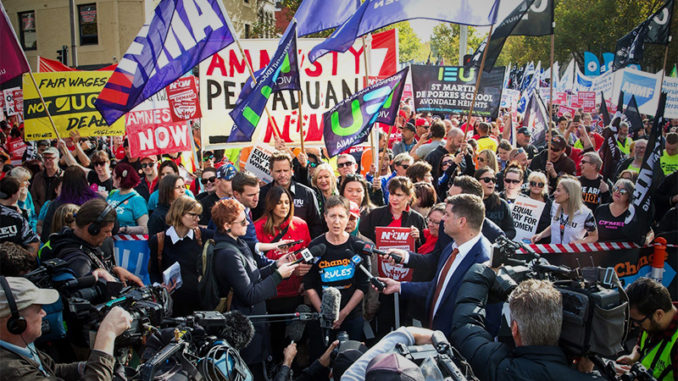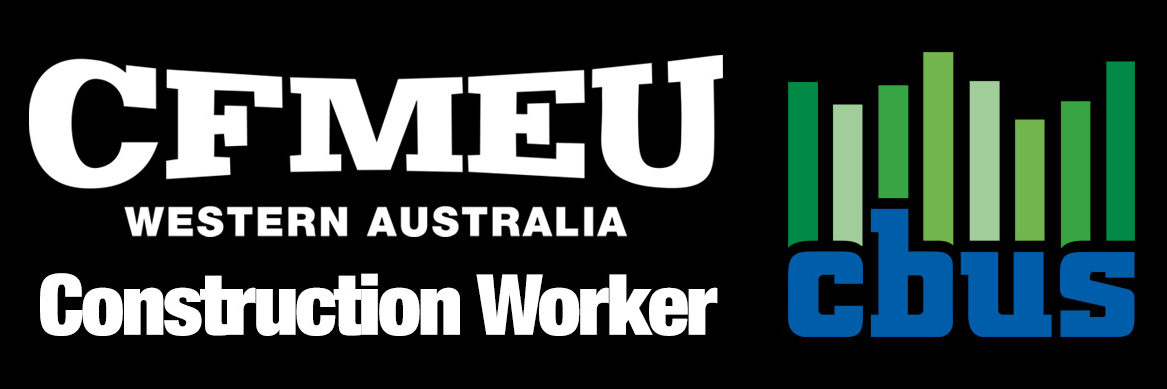
By Sally McManus
Over the past two years, Australian workers have suffered the lowest share of our nation’s wealth since the first ever television broadcast in Perth in 1960.
And while they complain about 2 per cent wages growth over East, Western Australia has had the slowest wage growth anywhere in the country at just 1.6 per cent last year.
That’s less than inflation. Which means wages are going backwards compared with the cost of living.
We’ve been promised things would turn around for a while now. The Federal Government has made 22 forecasts about wages in its time in Government, and every year since the Coalition took office, they’ve told us a wage rise is coming of between 2.5 and 3 per cent.
The Morrison Government’s predictions are so out of touch with what’s actually happening to people’s pay packets that the community have lost all faith in these predictions and it is clear something needs to change.
So what’s driving low wages?
We have a Federal Government that has voted for penalty rate cuts, opposed basic increases to the minimum wage, withheld pay rises for their own employees, and encouraged the rise of casualisation and use of insecure labour hire. Meanwhile, little has been done to address the epidemic of wage theft that we’re seeing across whole industries in our country.
The Federal Government’s cuts to penalty rates took away from many workers the only thing that was keeping their head above the economic tide of increases in the cost of living. Those rates were not extra money or bonuses. They were the proper and fair remuneration for working unfriendly hours, and they provided a living wage in some of our most highly casualised and low income industries.
The fact is that the rules are broken for working people in this country and they need to change to bring back balance and fairness to a system that lets big corporations get away with too much.
When BHP recently sacked 80 seafarers who were transporting iron ore around the Australian coast they did so without a word of complaint by the Federal Government, let alone intervention. These steady, secure jobs were replaced with exploited foreign labour working for less than $4 an hour and paid in a foreign currency in another country.
When BHP used predatory tendering and contracting at the biggest new iron ore project in Western Australia to award contracts to subcontractors offering wages at or below the legal minimum under the Award, they cut the collective income of our local communities by millions of dollars a year.
All of this is an absolute windfall for BHP, but a complete disaster for the local communities, local shops, and local businesses that rely on the patronage of those workers.
This sort of wealth transfer, from communities that need it, to big corporations has been happening across the economy for years.
The great myth of the current trickle-down policies is that we can’t raise wages because businesses can’t afford it. The fact is that profits are growing much faster than wages and businesses are getting a bigger share of what we produce than ever before.
But not small businesses. Not local businesses.
The big con that small business people have been told is that their interests in regards to wages are aligned with the top end of town. They’re not. Not at all.
Wage rises don’t hurt small businesses, they help them. Local workers are local customers. And people don’t spend money if their budget is squeezed so tight they’re struggling to get food on the table.
The smaller the share of our national wealth that goes to local workers, the less money flows into local businesses. And the average share of GDP going to local workers had dropped from a high of 58 per cent down to just 47 per cent.
Is it any wonder small businesses in Western Australia are struggling?
It’s time the Government accepted what the rest of us have already realized – Australia needs a pay rise.
We need to increase the minimum wage and give every Australian worker a dignified life.
We need to stop the abuse of labour hire and address all of the ways companies are casualising their workforce to drive down wages.
We need to restore the penalty rates that give people the wages they deserve for working unfriendly hours.
We need to stop the job theft and use of exploited foreign labour that rips wages straight out of our towns and local communities.
And we need to reaffirm the right of workers to workplace representation – the right to negotiate collectively through their unions and representatives to ensure fairness, safety and dignity for themselves and their families.
We need to change the government and change the rules.
Sally McManus is the Secretary of the Australian Council of Trade Unions
